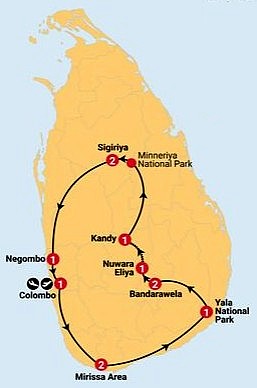Train to Kandy
After breakfast, we were taken to the Nanuoya Railway Station, for the four-hour train journey, almost to Kandy (the stop before - Randles Hill).
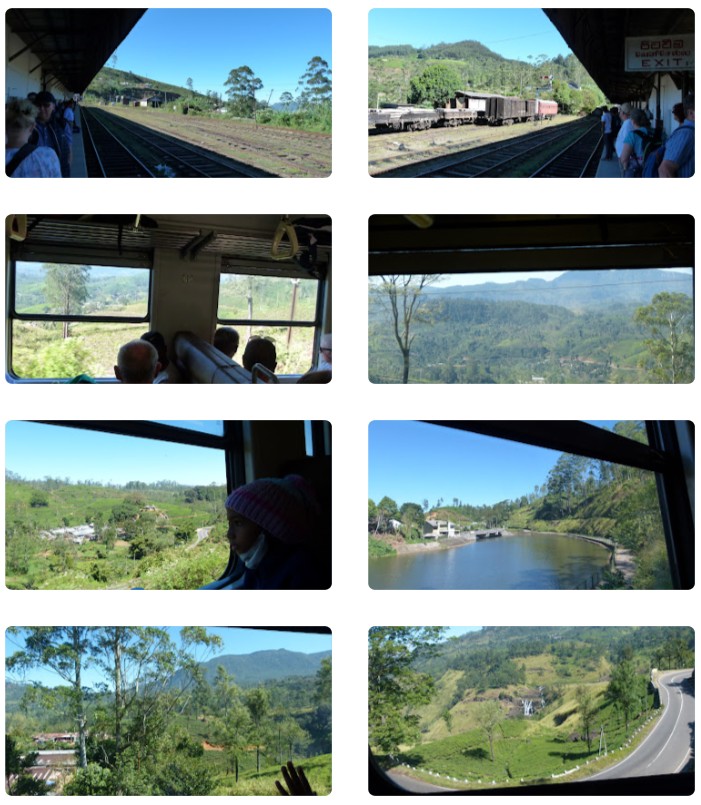
The train was very late. The bus with our luggage got there long before we did, in part because the road is shorter than the rail line, that needed to follow the contours to achieve a manageable gradient for Victorian Era locomotives.
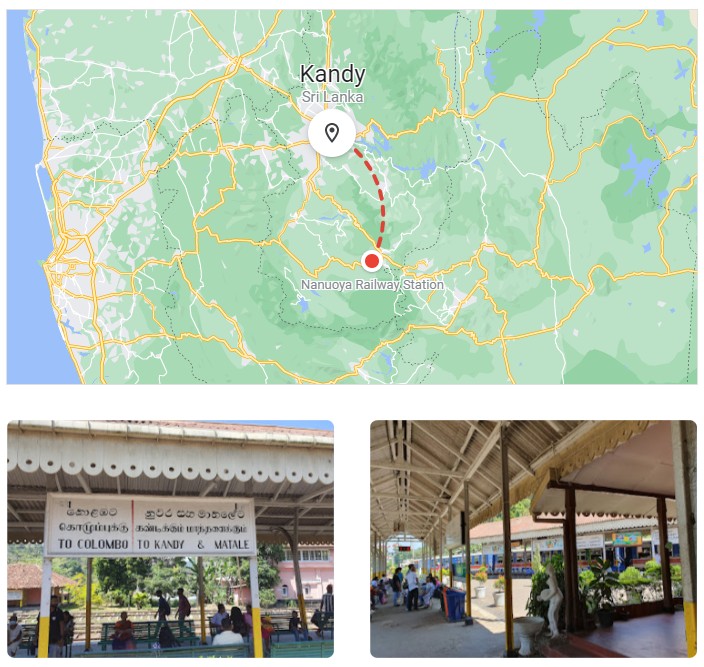
Kandy was the capital of the Kandy Empire (1514 - 1815). Like India and the middle east, the island of Sri Lanka was civilised (has had towns and kingdoms) for at least 500 years before the common era (BCE).
The principles of Buddhism were first written down here. Yet as we know from history, one of the functions of human civilisation and of kings (also known as war lords) is to make war on one's weaker neighbours and amass territory; power and; prestige. Such kings are typically called 'great'. Those who fail to correctly judge their target go down as foolhardy or are forgotten.
Thus, the last kingdom to control the entire island, before British rule, was the Kingdom of Kotte under the Chinese (Ming) backed Parakramabahu VI, the great.
Unfortunately for him, soon after conquering all those weaker than he, the Portuguese turned up with more modern weapons. Parakramabahu already had primitive firearms, thanks to trade with the Arabs, but the Portuguese had better guns and lots of experience converting or slaughtering uncooperative heathens elsewhere, thanks to the Pope's imprimatur.
Among the previously subjugated local kingdoms Kandy now saw the opportunity to do a deal with the new arrivals. Thus, the Portuguese would accept Kandian sovereignty over the highlands in return for an undisputed coastal trading base and port.
When the Dutch East India Company defeated and supplanted the Portuguese, they attempted, unsuccessfully, to overthrow the Kandy kingdom that, as is evident from the architecture, was no back-woods pushover.
Kandy has an ancient man-made lake and substantial historic buildings, including: the Palace complex; the Queen's swimming baths; and the Temple of the Tooth Relic, housing a tooth, reputed to have been shed by the Buddha, during his 2nd visit to the Island in 523 BCE. It has been in the care of various kings, and now the republic, ever since. Possession of this tooth has traditionally provided divine authority to rule.
The Dutch Company's locally recruited army was ignominiously routed and they too kept to the coast. So, it was not for some time after the British East India Company replaced the Dutch and consolidated their hold on the coast that, like the sub-continent and Burma, Kandy was forced to accept British sovereignty.
Earlier in the day, we were taken to a jewellery factory, that sets local gems. Ceylon sapphires have been particularly favoured by European jewellers for centuries. But the stones are rare and other, less precious, stones predominate. Nevertheless, gems and jewellery still contribute around 2% to Sri Lanka's mercantile exports.
Unfortunately, although I found the factory interesting, the accompanying sales pitch to our companions went on for far too long (cutting into potential market time).
That evening a: 'Sri Lankan Cultural Performance' and a 'Kandy market and Bazaar Tour' were scheduled. The start was delayed and to Wendy's further annoyance, the 'cultural event' went for so long that the market tour was aborted.
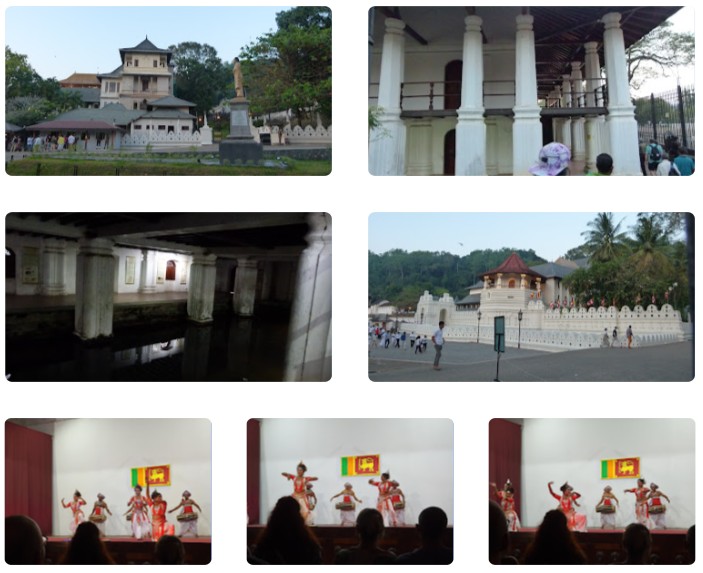
I missed most of this dubiously choreographed pastiche, as I fell asleep - until unseated - for the fire-walking on kerosene-soaked boards (authentic village culture, really?).
We just managed to get to the markets and buy a few designer clothes before everything closed.
Yet, this late-night foray was fortuitous, because we found a Pub, upstairs in the main street, that in addition to a very acceptable Spanish wine, had excellent meals - if Wendy's was little too big to finish.
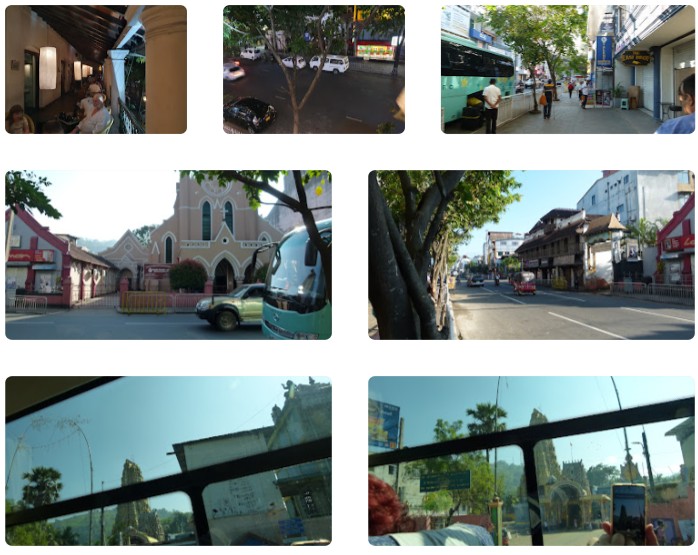
Most of our party had eaten earlier at a place next door to the hotel and several were not at all complimentary about the experience, as we departed on the bus the next morning.
As is true of many countries, tourism is important source of foreign exchange to Sri Lanka. 2018 was a peak year, with over three million tourist arrivals. But this enthusiasm was short-lived, due to Islamic terrorism (ISIS related) against Christian congregations and foreigners (several leading hotels were also bombed).
As India's 'Observer Research Foundation' observes: "Tourism in Sri Lanka accounts for almost 12 percent of the country’s GDP and is the third-largest source of foreign exchange reserves—behind worker remittances and the apparel industry. However, the 2019 Easter Sunday Bombings marked the beginning of the collapse of this industry. This was followed by the double-whammy of the COVID-19 pandemic and the Ukraine–Russia conflict amidst the current economic crisis in Sri Lanka—undoubtedly making the revival of this sector extremely challenging."
Last year tourist arrivals recovered somewhat to: 700,000 up from 195,000 the previous year.
Of less importance than tourism, yet still significant to the economy, is spice (around 4% of mercantile trade by value). The most important of these is cinnamon, followed by pepper.
Historically Sri Lanka was known as the island of cinnamon and was frequented by Arab traders, long before the Europeans discovered it.
At that time, exotic spices were worth much more than their weight in gold in Europe. For example, in 1500, in Venice, you could buy about 1.6 grams of pepper for a ducat. A ducat contained 3.545g of pure gold, thus pepper was worth more than twice its weight in gold, making a shipload of pepper twice as valuable to a trader as a shipload of gold bullion. Yet, pepper was relatively inexpensive, by weight, compared to cinnamon or nutmeg, a reputed aphrodisiac.
We stopped at a spice farm. If you believed this guy, there's a spice for every ill and modern medicine is entirely beholding to plant products - think aspirin (willow bark) digitalis (nightshade), novocaine (cocaine), and, of course, opium.
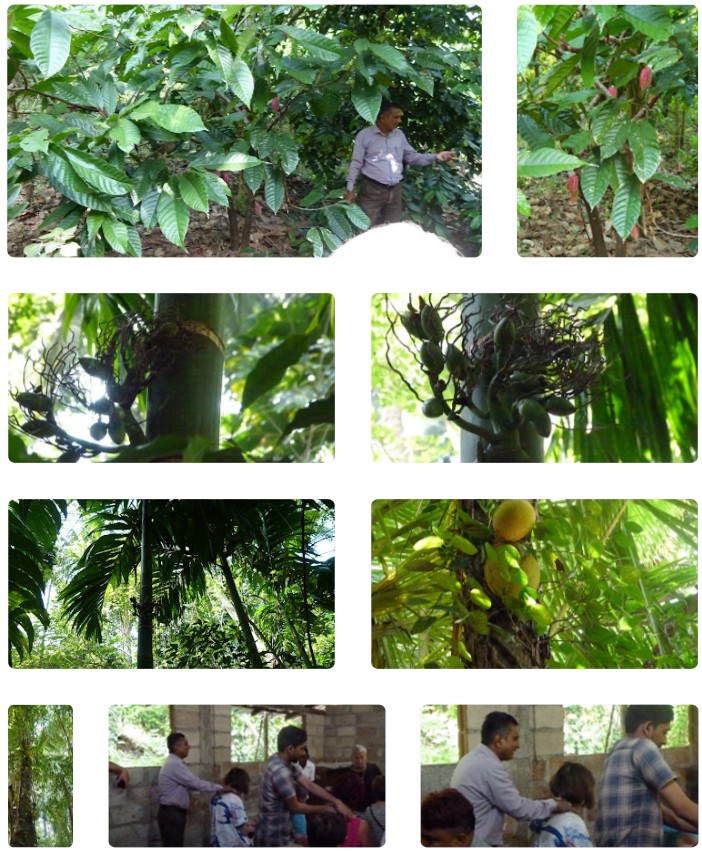
He was a very good 'snake oil salesman' and almost all the women on our bus came away with something.
Yet, the Betel Nuts stayed on the tree - strictly for local consumption I suppose.

